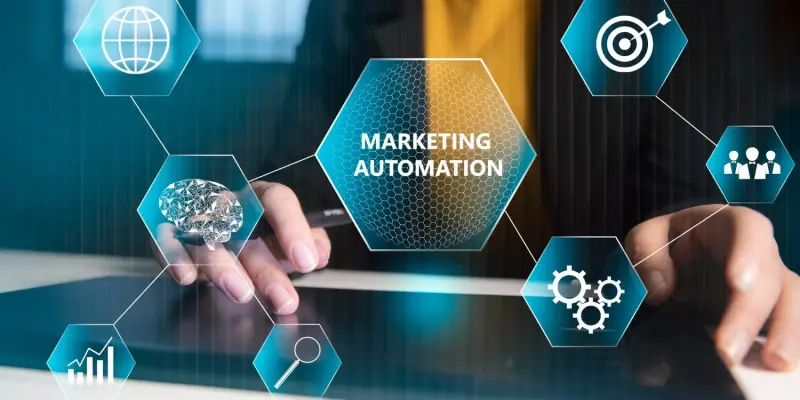In today’s business landscape, small and mid-sized enterprises (SMEs) face a myriad of challenges, especially when it comes to carving out a niche in the competitive digital marketplace. The need for efficient marketing strategies tailored to budgetary constraints and limited resources is more pressing than ever. As a response to these challenges, a new wave of marketing automation tools has emerged, promising to transform the way SMEs conduct their marketing activities, ultimately boosting success and growth. These tools focus on streamlining processes and maximizing impact, enabling SMEs to automate repetitive tasks, enhance customer relations, and gather valuable insights for strategic decision-making.
Integrated Solutions for Seamless Automation
Streamlining Complex Marketing Processes
Marketing automation platforms like HubSpot and ActiveCampaign have revolutionized how SMEs engage with their target market by offering integrated solutions that blend various aspects of customer interaction into a cohesive strategy. HubSpot, renowned for its all-in-one approach, provides an intricate blend of marketing, sales, and customer service tools. This allows SMEs to cultivate meaningful relationships through personalized contact management and real-time CRM updates. With functionalities that integrate email marketing, lead tracking, and analytics, businesses can deliver targeted campaigns without navigating through complex technical setups. This comprehensive automation framework reduces operational burdens, enabling SMEs to focus on refining their strategies and achieving greater returns on investment. ActiveCampaign stands out by offering finer control over campaign customization and automation flows. Its platform facilitates the creation of personalized customer journeys, responding to specific user behaviors through condition-based marketing strategies. This empowers businesses to engage with customers in highly personalized ways, thanks to a robust set of segmentation tools powered by powerful analytics engines. Through these capabilities, SMEs can craft campaigns that resonate profoundly with audiences, thereby driving engagement and conversion rates. The ease of managing multiple channels within a single platform further amplifies marketing efficiency, ensuring consistent communication that helps SMEs remain competitive in a rapidly evolving digital environment.
Facilitating Personalized Customer Engagement
Mailchimp has grown from a simple email service provider into a versatile marketing tool that supports beginners transitioning into the realm of marketing automation without overwhelming complexities. Its intuitive design and user-friendly interface empower SMEs to quickly deploy branded campaigns using pre-designed templates. While Mailchimp may not boast advanced features like those found in other platforms, its simplicity caters to businesses looking to establish foundational marketing practices. As an added benefit, Mailchimp’s analytics offer insights into campaign performance, allowing businesses to adjust strategies based on user interactions and feedback, increasing their chances of nurturing long-term customer relationships.
Klaviyo has made significant strides in providing tailored solutions for ecommerce businesses, especially those utilizing platforms such as Shopify or WooCommerce. Tailored for product-centric marketing, Klaviyo excels in leveraging real-time customer data to automate personalized messaging across multiple channels. Its features include dynamic product recommendations, abandoned cart reminders, and efficient post-purchase marketing tactics that foster continued engagement, driving conversions and sales. By simplifying deep segmentation processes based on user actions, Klaviyo assists SMEs in constructing actionable insights, ultimately transforming potential leads into loyal customers. Such targeted approaches enhance brand image and foster community among dedicated clientele.
Advanced Functionalities for Large-Scale Operations
Supporting Enterprise-Level Precision
For larger SMEs and enterprises seeking to tackle intricate marketing challenges, Marketo stands as a stalwart within Adobe’s suite of tools, offering capabilities that cater to comprehensive B2B marketing needs. With advanced lead management and detailed analytics, Marketo addresses requirements of complex strategies and long sales cycles. It enables marketers to understand lead scores, nurture prospects, and automate account-based marketing with precision across diverse channels. Despite its older user interface, Marketo continues to be a favorite among entities that demand meticulous oversight to ensure optimal engagement throughout the customer lifecycle. By providing the infrastructure needed for large-scale digital marketing operations, it facilitates sustainable long-term growth.
Drip, on the other hand, offers optimized solutions for ecommerce entities looking to engage in streamlined automation without undue complexity. Integrating well with platforms like Shopify, Drip’s architecture involves intuitive workflows for common triggers, such as first-time purchases and cart abandonment. This allows SMEs to craft effective communication strategies without requiring programming expertise, capturing customers’ attention with timely and relevant messaging. Drip’s focus on enhancing customer lifetime value through precision-targeted campaigns provides businesses with a competitive edge, helping them build lasting relationships that encourage repeat business, fostering sustainable growth amid digital marketplace dynamics.
Building Connections at Scale
The adoption of marketing automation tools has increasingly empowered SMEs to overcome the resource barriers that once impeded their ability to compete in the vast digital ecosystem. By facilitating the creation of personalized and data-driven marketing campaigns, these tools allow businesses to harness the power of automation to optimize customer engagement strategies significantly. Automation platforms provide businesses the flexibility to scale operations by simplifying complex marketing workflows, from nurturing leads to driving conversions. As a result, SMEs can focus on strengthening their competitive edge by building effective personalized connections with consumers globally, converting interactions into business growth far beyond standard expectations.
Transforming Marketing Strategies for Success
In the current business environment, small and mid-sized enterprises (SMEs) are tackling numerous obstacles, particularly in establishing a position in the fiercely competitive digital marketplace. With budget limitations and scarce resources, the demand for effective marketing strategies has become more urgent than ever. To address these issues, a new trend of marketing automation tools is gaining traction, aiming to revolutionize how SMEs manage their marketing efforts for increased success and growth. These innovative tools focus on optimizing processes and maximizing results, enabling SMEs to automate routine tasks, improve customer engagement, and collect crucial insights for informed strategic decisions. By leveraging technology, SMEs can streamline operations, providing a competitive edge in a crowded market. Embracing automation tools not only enhances efficiency but also empowers SMEs to adapt to changing digital trends, ensuring relevance and sustainability in an ever-evolving business landscape.

